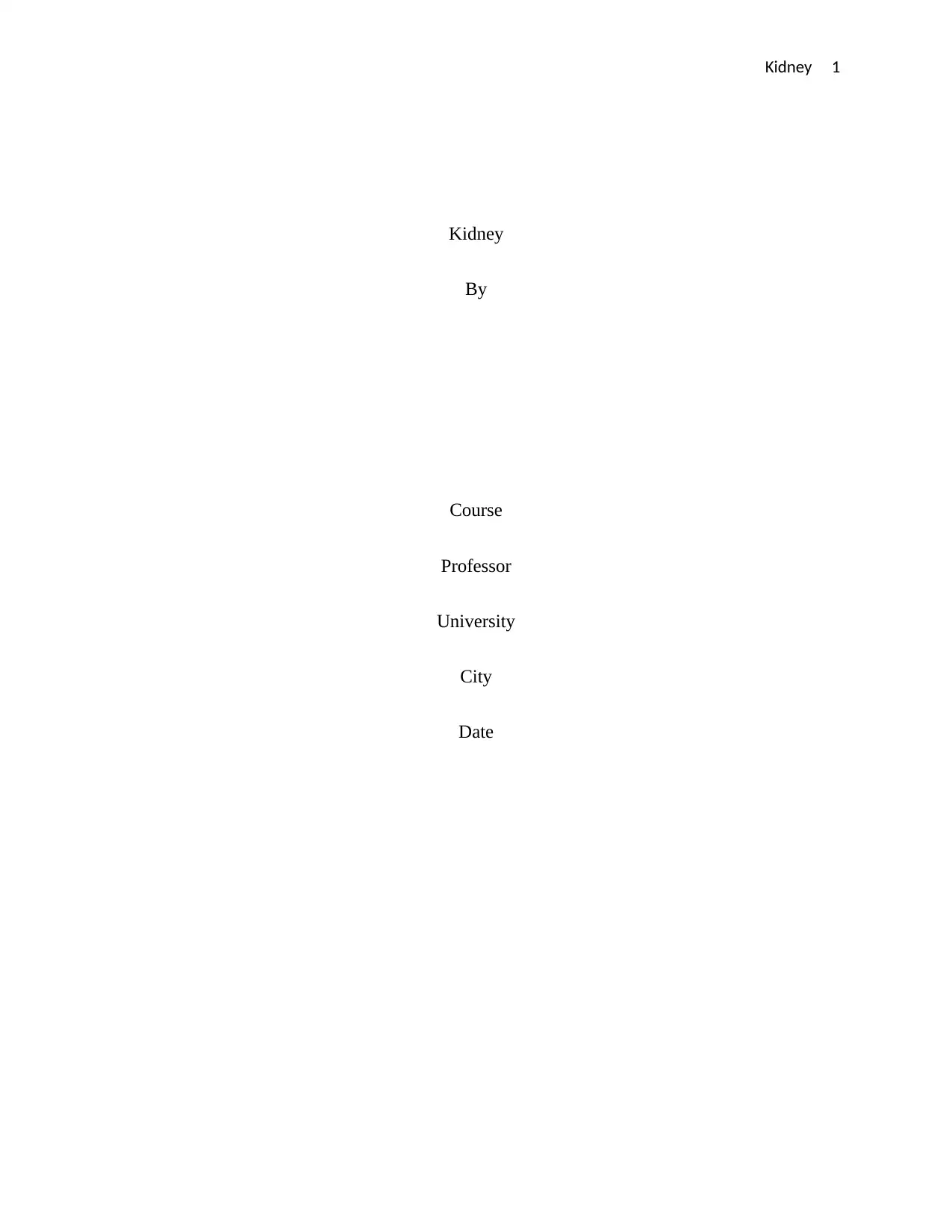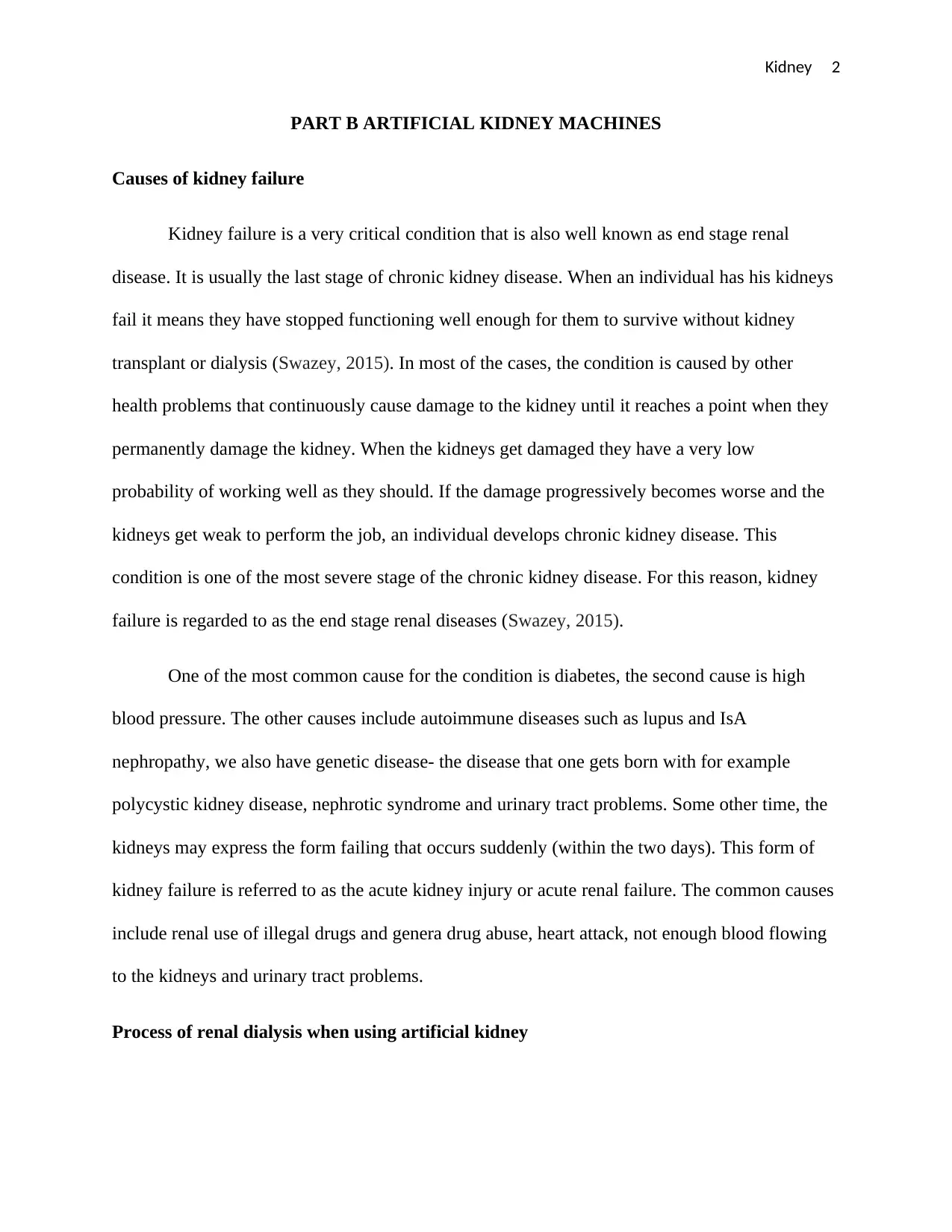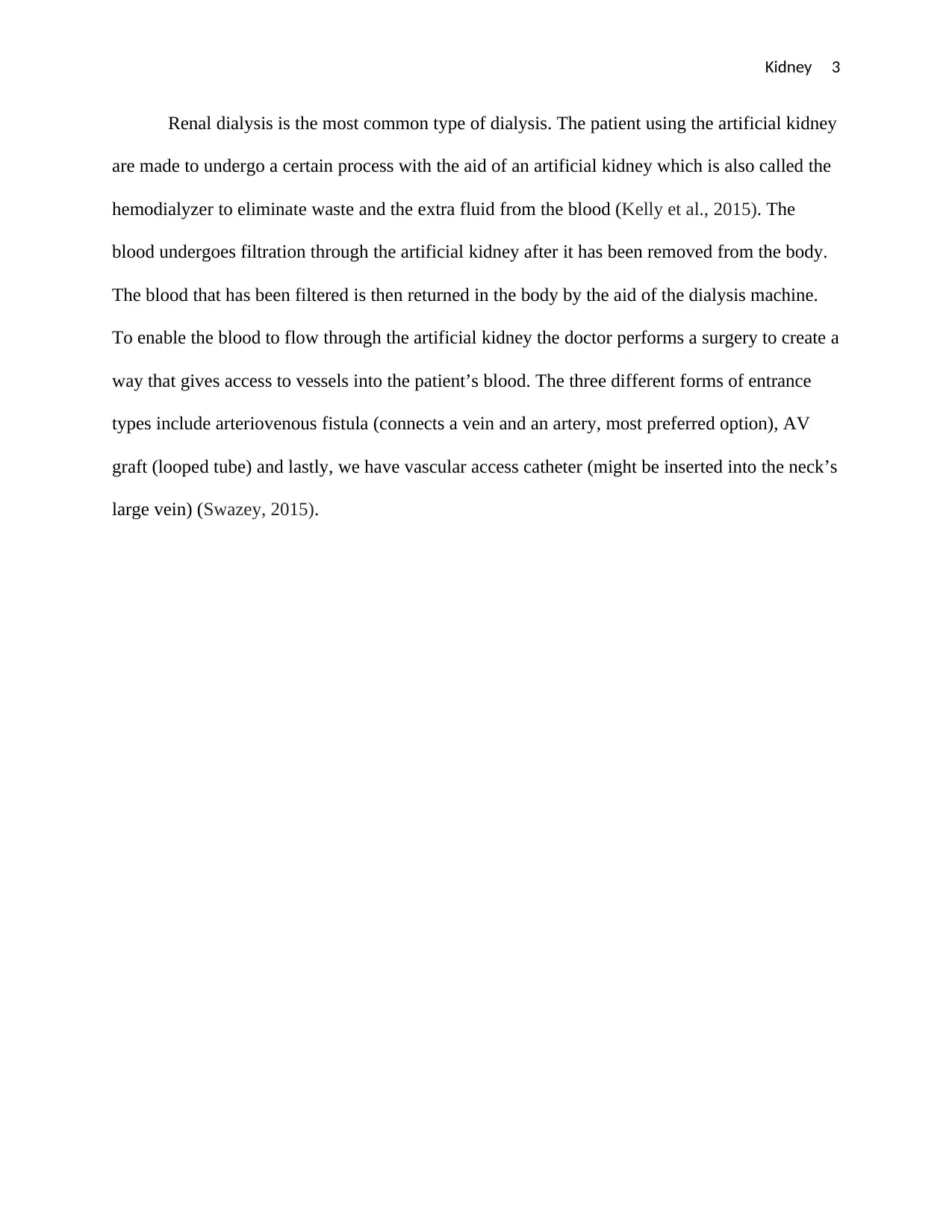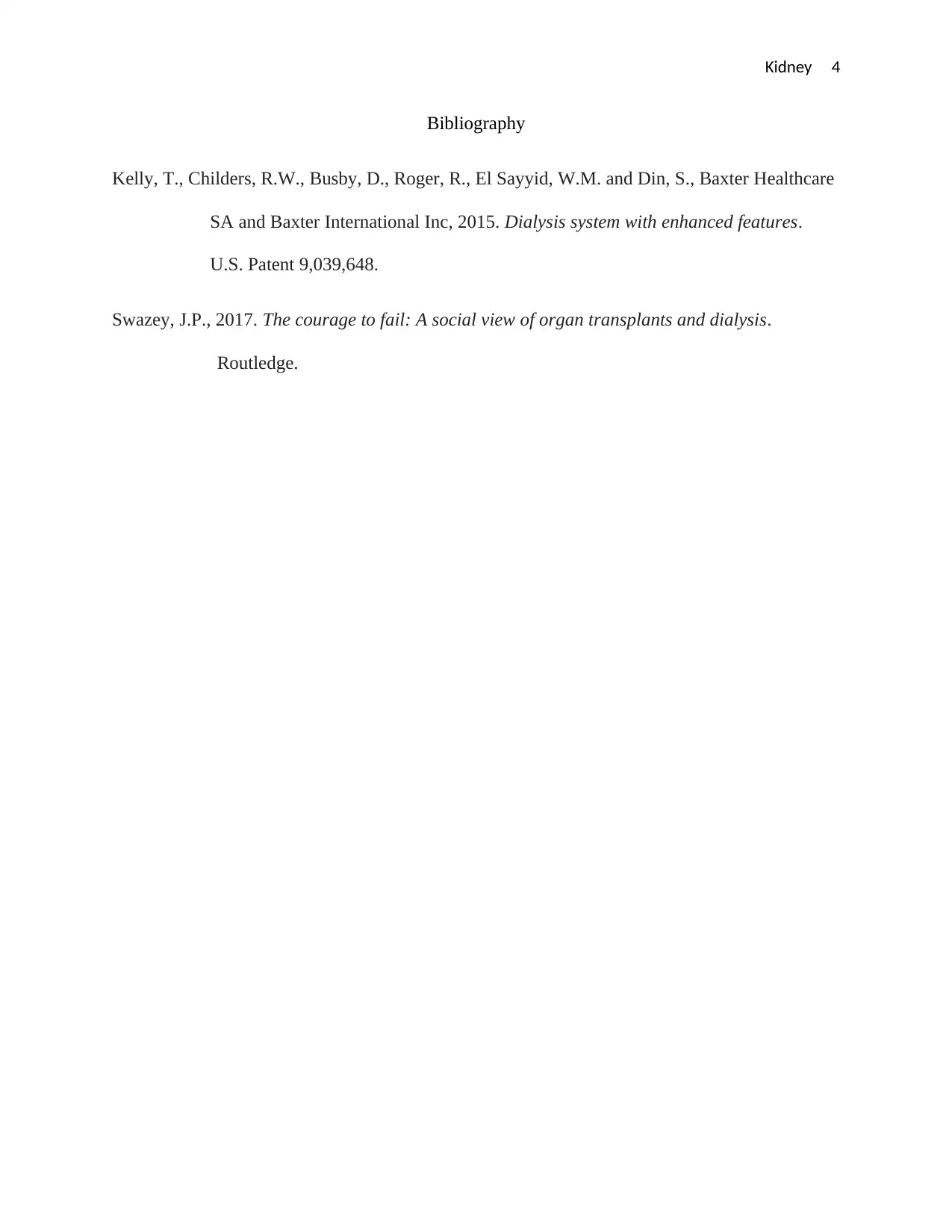Kidney 2 Kidney Report: Causes of Kidney Failure and Dialysis Process
VerifiedAdded on 2023/01/10
|4
|567
|86
Report
AI Summary
This report delves into the critical topic of kidney failure, exploring its causes, the process of renal dialysis, and the role of artificial kidney machines. It identifies diabetes and high blood pressure as primary contributors to kidney failure, alongside other conditions like autoimmune diseases and genetic factors. The report details the process of dialysis, including the use of hemodialyzers to filter blood, the creation of vascular access points, and the different types of access, such as arteriovenous fistulas, AV grafts, and vascular access catheters. It emphasizes the importance of understanding these processes for effective treatment and management of end-stage renal disease. The report concludes with a bibliography of the cited sources. This report is a valuable resource for students seeking to understand kidney failure and its treatments.
1 out of 4










![[object Object]](/_next/static/media/star-bottom.7253800d.svg)